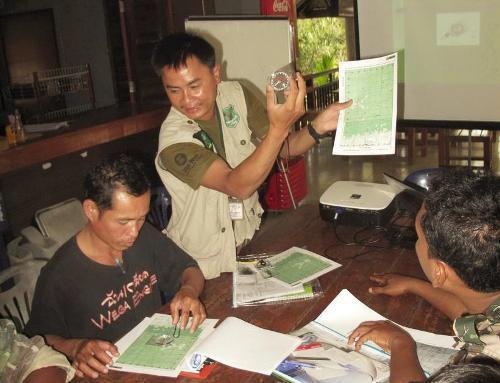Thattaya Bidayabha
The aim of the project is to train park rangers in standard field data collection methods and develop an understanding of carnivore distribution in the forest complex to enhance conservation and park protection.

The presence or absence of carnivores in an area is often an indicator of ecosystem health. If large predators can survive in an ecosystem it usually demonstrates the environment is healthy enough that most other species can also survive. The goal of this project is to increase the understanding of felid carnivore presence and distribution in Thap Lan National Park, which is part of the larger Dong Phayayen Khao Yai Forest Complex. We will train park rangers to collect basic ecological field data using standardised recording techniques. Following completion of the training, data collected and subsequent analysis will provide both an indicator of the overall ecosystem health of the Complex and a better understanding of the distribution of carnivore species.
The Complex is a World Heritage Site; designated in 2005 it contains the last substantial area of globally important tropical forest ecosystems of the Thailandian Monsoon Forest biogeographic province in northeast Thailand. This forest potentially provides a viable area for long-term survival of many endangered, globally important species. Despite its significance, many of the parks that form the Complex remain incredibly under resourced for wildlife conservation purposes and are not able to provide adequate protection against threats such as poaching and encroachment.
Poaching and the motivation to poach valuable endangered species, including many felids is on the rise in Thailand due to the depressed economic situation. There is an urgent need to provide these enigmatic wildlife species with protection from poaching and determine their status and distribution. This knowledge will enable more effective protected area management, as well as increased and better focussed park protection.